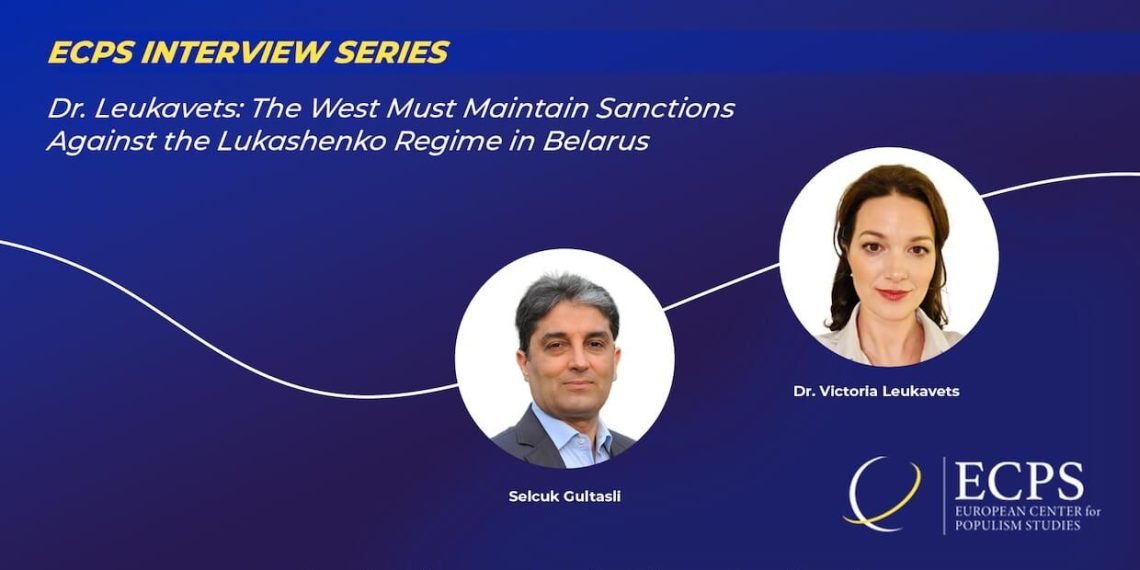In an exclusive interview with the ECPS, Dr. Victoria Leukavets highlights the critical role of sanctions in pressuring Lukashenko’s authoritarian regime. She argues, “Sanctions do work, though some have a delayed effect—particularly economic and sectoral sanctions. However, they do have an impact.” Dr. Leukavets also discusses Russia’s deepening control over Belarus, media repression, and the resilience of Belarusian democratic forces in exile. She underscores that continued Western support for independent media and civil society is essential to counter Lukashenko’s grip on power and prevent Belarus from becoming a full extension of Russia’s influence.
Interview by Selcuk Gultasli
In a candid and insightful interview with the European Center for Populism Studies (ECPS), Dr. Victoria Leukavets, a Research Fellow at the Stockholm Center for Eastern European Studies (SCEEUS), discusses the evolving political landscape in Belarus, Aleksander Lukashenko’s populist strategies, Russia’s growing influence, and the role of the West in countering authoritarian consolidation. Dr. Leukavets emphasizes that the continuation of Western sanctions is essential in exerting pressure on the Lukashenko regime, stating, “Sanctions do work, though some have a delayed effect—particularly economic and sectoral sanctions targeting strategic sectors of the Belarusian economy. However, they do have an impact.”
According to Dr. Leukavets, recent waves of political prisoner releases signal that sanctions are forcing Lukashenko to test the waters for negotiations with the West. “Many would agree that sanctions’ pressure has played a key role in forcing him into this scenario, making him test the waters for negotiations. His primary goal remains easing sanctions’ pressure.” However, she warns that Lukashenko remains committed to tightening his grip on power and that sanctions must continue to be a key instrument in the EU’s foreign policy toolbox.
Throughout the interview, Dr. Leukavets provides a historical overview of Lukashenko’s use of populist rhetoric to maintain control over Belarus, tracing it back to his first electoral campaign in 1994, when he positioned himself as a "man of the people" and an anti-corruption crusader. She explains that Lukashenko’s authoritarian populism has evolved over time, particularly after the 2020 protests, with an intensified level of repression and a media crackdown that has silenced independent voices.
Moreover, Russia’s role in propping up Lukashenko has deepened, making Belarus increasingly dependent on Moscow’s economic, military, and cultural influence. “Frankly speaking, what we are witnessing is the gradual transformation of Belarus into an extension of Russia’s military, economic, and cultural space.”
Dr. Leukavets also discusses the complex relationship between Lukashenko and far-right parties in Europe, the potential U.S. stance under Donald Trump’s presidency, and the strategies Belarusian democratic forces are employing to challenge the regime. She underscores that support for independent media, civil society, and opposition groups in exile remains crucial in resisting Lukashenko’s authoritarian consolidation.
In this interview, Dr. Leukavets offers a compelling analysis of Belarus’s future, outlining what the West can do to counter Lukashenko’s grip on power while avoiding further repression.


